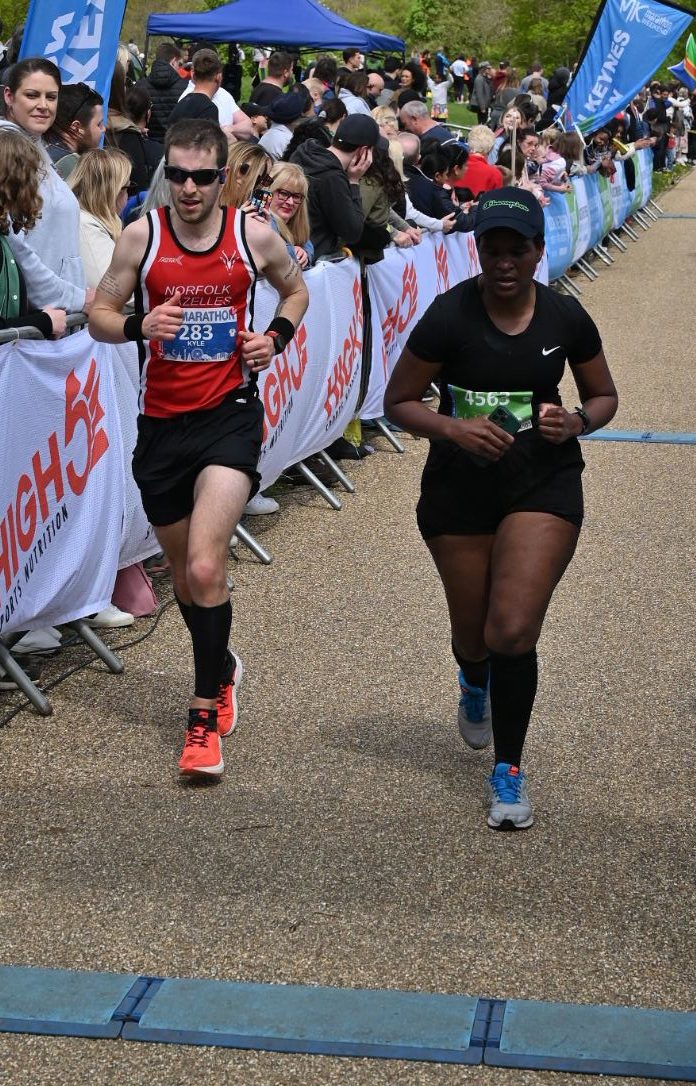The marathon is an unpredictable distance in so many ways. Whilst most of the parameters can be controlled for, and I don’t buy into the reasons that are often given for “bad” races, occasionally it just doesn’t go to plan, no matter how well laid or executed. As frustrating as that can be, it’s simply the other side of the coin to the elation that comes from marathons where it all goes the way you want.
I’ve wanted to write this blog for a while anyway, but after my experience at Milton Keynes, it’s an opportune time while the topic is very real for me.
So, how do we bounce back from a bad marathon? Let’s face it, it would be so easy for the experience to tear us down and destroy any confidence we’d built up, whether that’s justified or not.
I find it really helps to understand what happened and why. By having a clearer understanding, we can more easily move away from unnecessary self-judgement, and identify, honestly, where we could have done things differently but without beating ourselves up for it. Optimism doesn’t mean ignoring the negatives, it just means framing them in a more positive light.
Here’s a step-by-step guide to figuring out the way forward.
Assess what went wrong
Look back over your training and ask yourself some questions. It’s really important to be honest with yourself here and give a straightforward appraisal without bias.
- Was my time target realistic considering recent races I’ve done?
- How many miles did I run on average per week?
- Does this mean I may have over trained or under trained?
- Did I taper well/what did I do in my taper?
- Did I get enough recovery? (sleep, good nutrition, hydration etc.)
Next look at your race plan and execution
- Did I start too fast?
- Did I try to increase pace too early?
- Was my pacing even/did it relate well to elevation changes?
- How much fuel and hydration did I take on? Was this too little, just right or too much?
- Was the weather different to what was expected? If so, how did I adapt to this?
- What were my thoughts on the day, before and during the race?
- Did I research the route to know what to expect?
Areas for improvement
From each of these questions, we then take the answers a step further. You can look at this as an opportunity to consider everything you could possibly have done differently with your current knowledge, or just a way to expand on your previous answers and give context to them. There’ll be some blind spots and missing information here, but that’s ok. Nobody knows everything, and we can’t expect ourselves to see all the angles of a situation. Equally, in your answers, give yourself credit for what you did well, as we can also learn and grow in confidence from the small victories.
- How could you train differently? Less, more, or different types of training.
- How could you taper differently? Longer, shorter, more or less intensity.
- How could your recovery be improved?
- How can you work on pacing and goal setting?
- What changes would you make to your fuel or hydration strategy?
- What mental tactics can you employ to help?
- What could you do to prepare for the specific challenges of the route?
Once you’ve got a list of possible actions to take, put them in order. This could be from the most impactful to the least, the easiest to implement to the hardest, or just in order of preference.
Pick a few target races over the next 6 months, perhaps even your next marathon, and start putting things in motion to make it a better experience.
Written by Kyle Brooks, Running Coach based in Norwich, Norfolk

